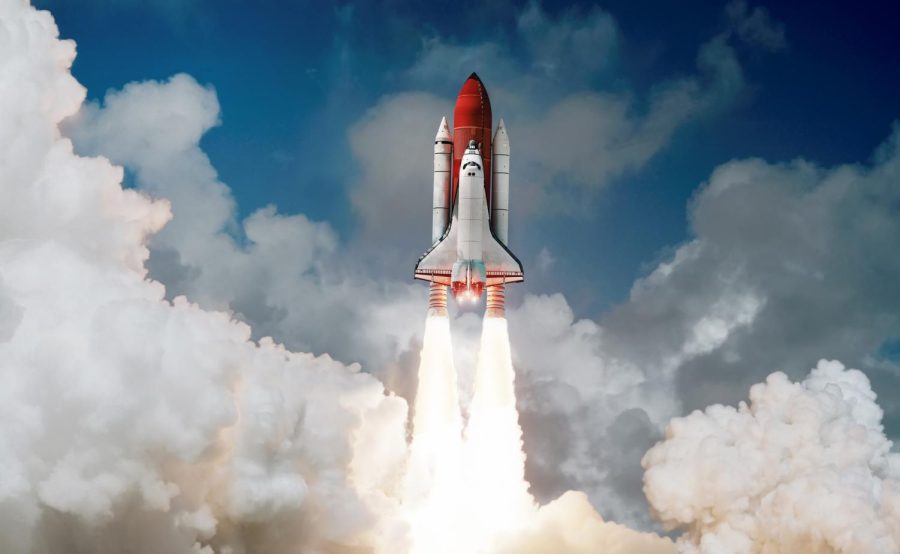A new space race is looming
Getty Images
Space exploration hit new highs in 2022 and Columnist Lucy Atkinson believes it’s good we’re going up into the sky again.
January 23, 2023
For the first time since America’s 1960s dance with the Soviet Union, a brand new space race could be underway, but with luck, today’s discoveries will be less about the “race” and more about the “space.”
2022 was record-breaking in terms of space exploration.
Launching the equivalent of one rocket every six days, as SpaceX tweeted on Dec. 30, the Elon Musk-owned company broke its own record for rockets launched in a year with 61 successes in 2022.
Meanwhile, NASA has continued to gain nations’ signatures for the Artemis Accords, a proposal to work internationally towards the goal of “achieving a sustainable and robust presence on the Moon while preparing to conduct a historic human mission to Mars,” according to the NASA website.
This plan seems the most exciting and hopeful space development of 2022 as it alludes to an idea not purely prioritizing American position and power. If conducted properly, the Artemis Accords could trigger a true international teamwork focused upon collective experimentation and the shared human curiosity for the unknown.
Such a peaceful and unified idea must qualify as exciting in any situation, granted those engaged remain morally and ethically responsible.
So what makes these milestones potentially problematic?
Unfortunately for the celebration of science, humans are naturally competitive creatures and, especially in the context of rivaling nations, it is difficult to do anything exciting without others wishing they had done it first. A race must have its competitors.
China, for instance, is often viewed as America’s most avid competitor in any approaching space race and set off its 453rd Long March rocket on December 29, 2022, according to the China National Space Administration.
Whether we are kindergarteners learning our ABCs or international leaders in debate, we must ensure we understand that the desperate need to know more than the other should never exceed the need to maintain peace and safety, or perhaps we are not worthy of all the moon’s mystical secrets.
Rashmi Shivni, a master’s astrobiology student long fascinated with outer space, however, is not concerned about a space race threatening the incentive of today’s star-dusted discoveries.
“At this point, I think the difference now is we’re more collaborative on our missions to do science and space. So it’s less of a race and more of a, like, happy-go-lucky, together collaborative effort… NASA doesn’t work in a vacuum with this mission,” said Shivni.
As Shivni describes them, the Artemis missions will put real meaning behind the phrase, slow and steady wins the race, a much different feel from the high tension that characterized the 1960s.
“What’s interesting about Artemis is that they’re doing it…in phases that are very logical. So, like, first phase, they’re just testing out new systems, new spacecraft…new launching system.”
Second phase will send astronauts to circle the moon but not land, and the third phase will find humanity once again on the face of the moon, eager to experiment with all the lunar landscape has to offer.
Ultimately, Shivni explains that the path space exploration is headed along today is reflective of a true dedication to effective, safe and beneficial discovery.
The main criticism of the space race she is sympathetic to is the concern that the high expenses of the mission would be better spent protecting our own planet Earth. Recognizing this argument as valid, Shivni advocates for a healthy balance, and a prioritization of all science, be it in the stars or of the soil.
Thus we are left on a hopeful note. While humanity may never lose the instinct to show-off, we can trust in the efforts of today’s passionate space-scientists and the exciting, impactful potential they hold.







